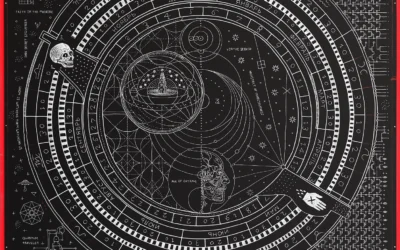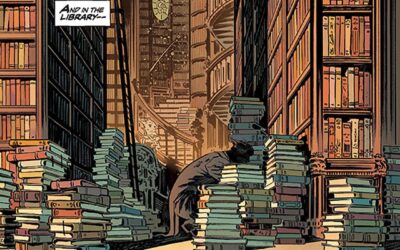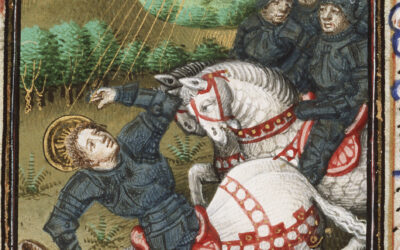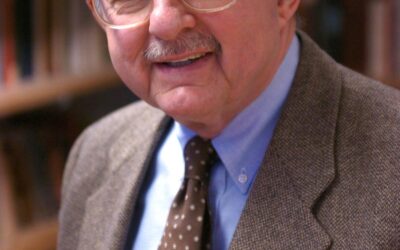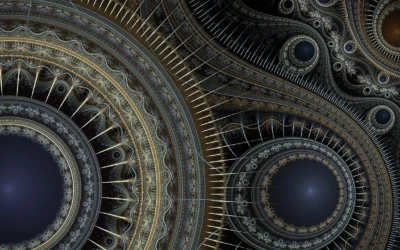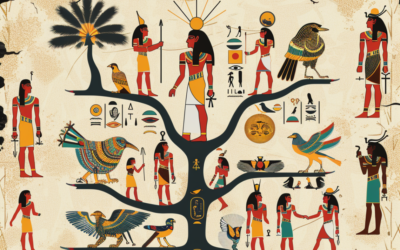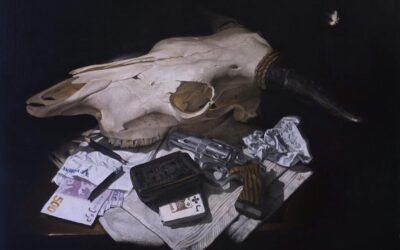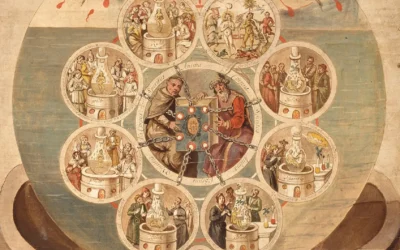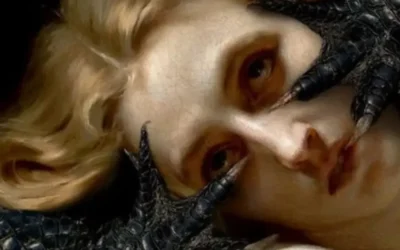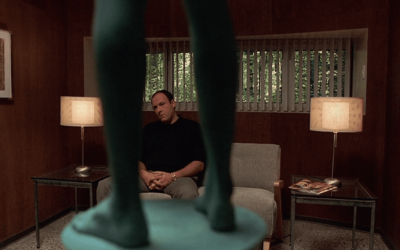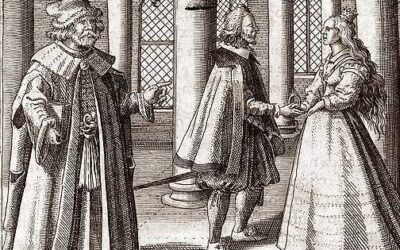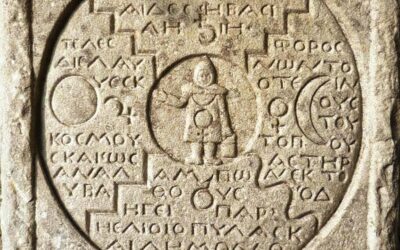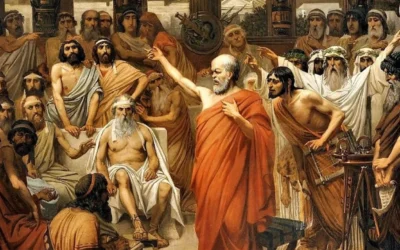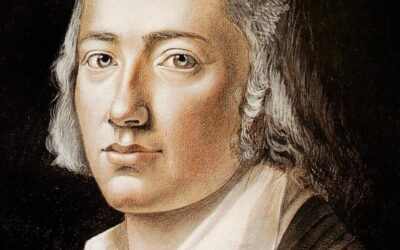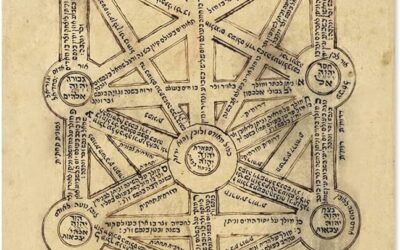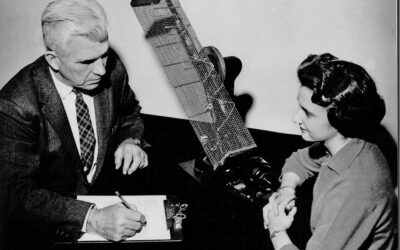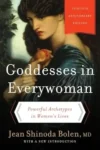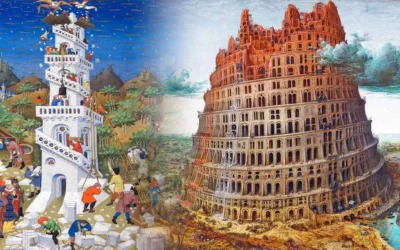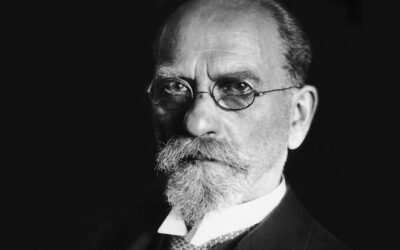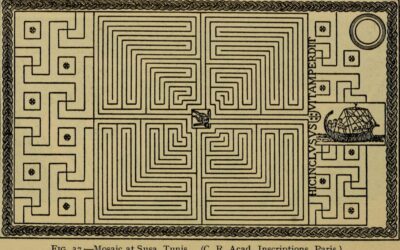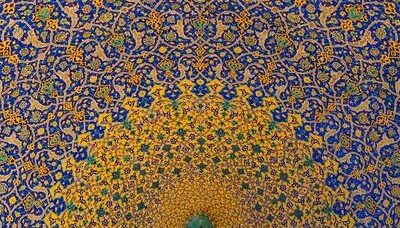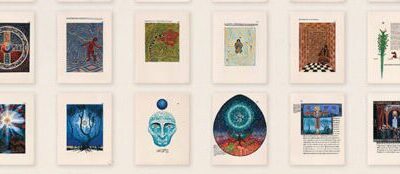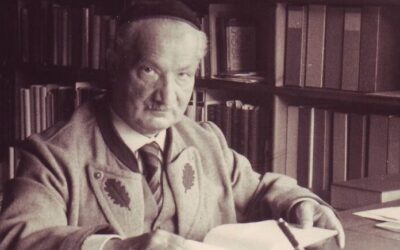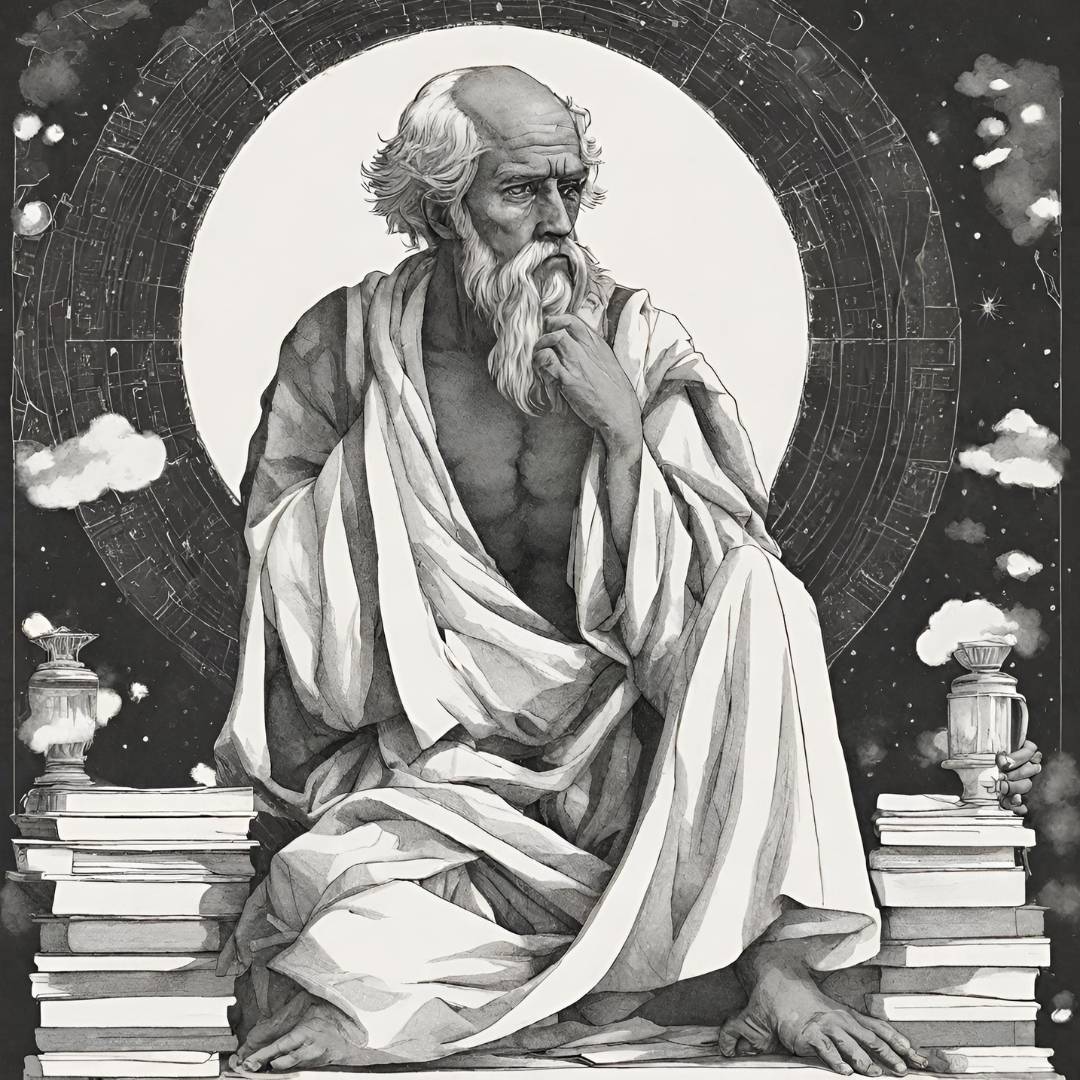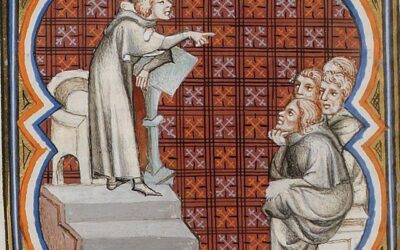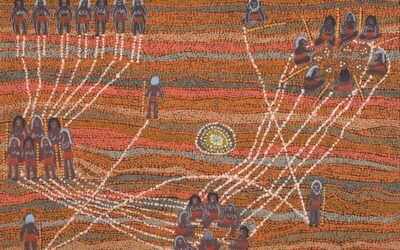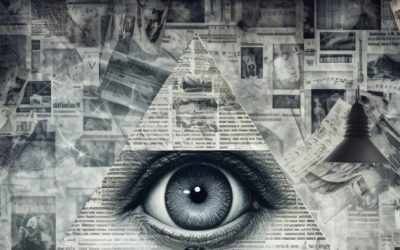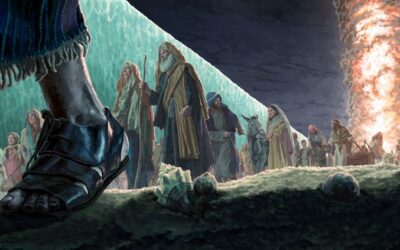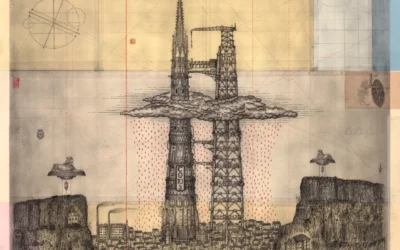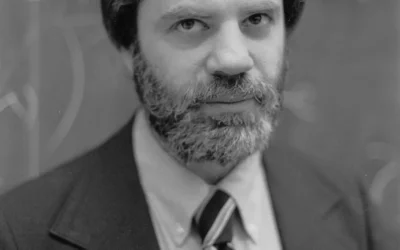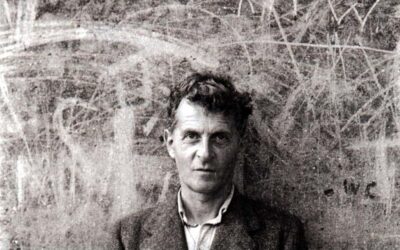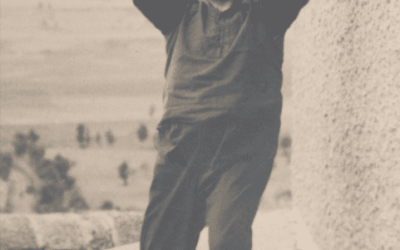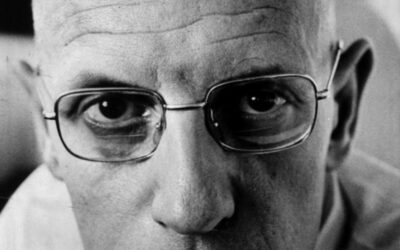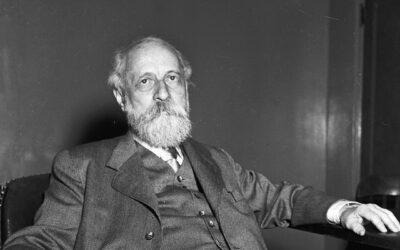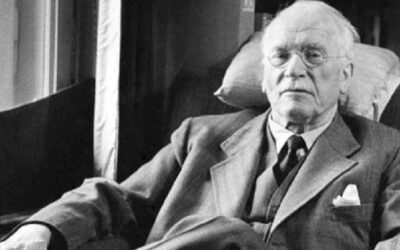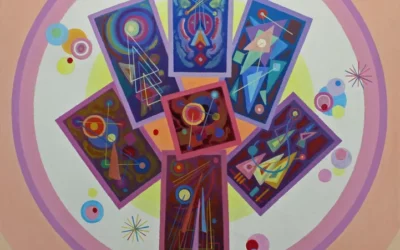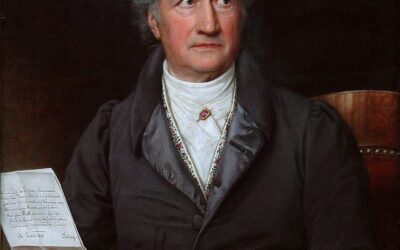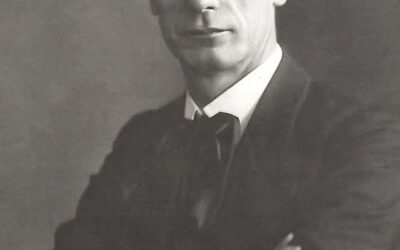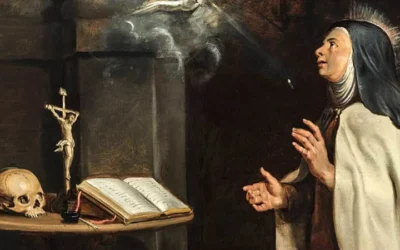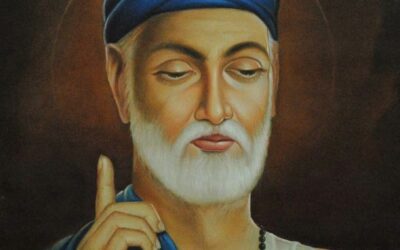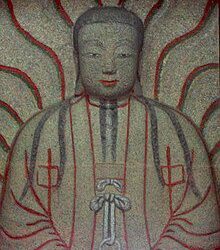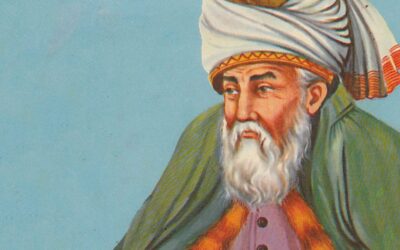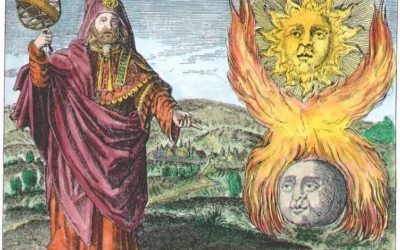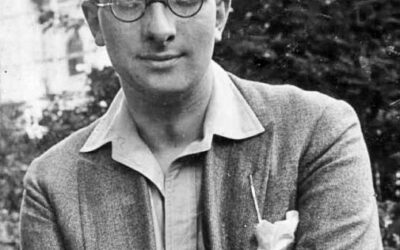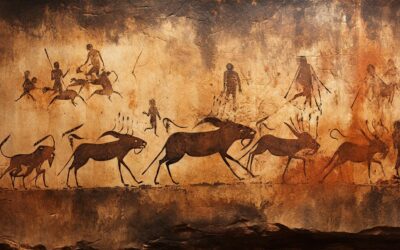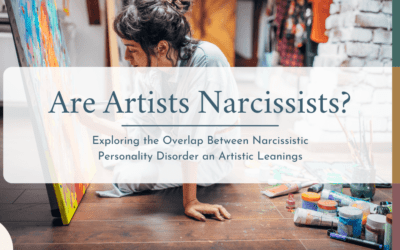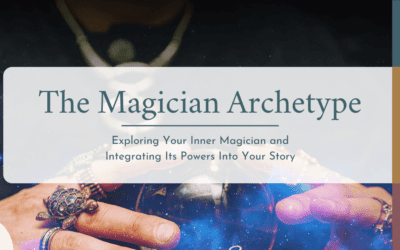A Revolutionary Approach to Mental Health In a groundbreaking interview between Joel Blackstock and Adam O'Brien, founder of the Wounded Healer Institute, we explore the profound interconnections between dissociation, trauma, and addiction that challenge conventional psychiatric approaches. This comprehensive discussion offers mental health professionals, individuals experiencing dissociation, and anyone interested in alternative healing approaches a fresh perspective on understanding and treating complex...
Jungian Concepts and Depth Psychology: Exploring the Hidden Depths of the Human Psyche
Ancient Wisdom Meets Modern Therapeutic Practice in Birmingham
Welcome to Taproot Therapy Collective’s exploration of Jungian psychology and depth therapeutic approaches that honor the profound complexity of human consciousness. As Birmingham’s premier integrative therapy practice, we recognize that lasting healing often requires venturing beyond surface symptoms to engage with the deeper patterns, symbols, and archetypal forces that shape our inner lives.
Understanding Depth Psychology and Jungian Analysis
Our Jungian Concepts and Depth Psychology blog category delves into Carl Jung’s revolutionary insights into the human psyche, exploring how concepts like the collective unconscious, archetypes, shadow work, and individuation process continue to transform lives in contemporary therapeutic practice. We examine how these timeless psychological principles illuminate personal struggles while offering pathways toward wholeness and authentic self-expression.
This approach builds on the comprehensive therapeutic philosophy outlined on our main services page, where we emphasize that therapy involves more than symptom reduction and embrace individualized care that honors each person’s unique psychological landscape and life calling.
Core Jungian Concepts in Modern Therapy
The Collective Unconscious and Archetypes represent Jung’s groundbreaking discovery that humans share universal psychological patterns manifesting through archetypal figures like the Hero, Anima/Animus, Shadow, and Self. These patterns appear in dreams, relationships, creative expression, and life transitions, offering profound frameworks for understanding personal experiences within larger human contexts.
Shadow Work and Integration involves courageously engaging with rejected, denied, or unconscious aspects of personality that often contain vital energy and wisdom. Rather than eliminating difficult emotions or traits, Jungian approaches seek integration and conscious relationship with all parts of the psyche. Our exploration of shadow concepts appears throughout our analysis of psychological storytelling and character development, where archetypal patterns illuminate both personal growth and creative expression.
Individuation Process describes the lifelong journey toward psychological wholeness and authentic self-realization that Jung considered the central task of human development. This process involves integrating conscious and unconscious elements, reconciling opposing forces within the psyche, and developing a mature relationship with the Self archetype that transcends ego-centered concerns.
Dreams and Active Imagination serve as direct communications from the unconscious mind, offering symbolic guidance for personal growth and healing. Jungian dream work treats dream images as meaningful expressions of the psyche’s self-regulating wisdom rather than merely processing daily experiences or wish fulfillment.
Jung’s Personal Journey and The Red Book
Understanding Jung’s own confrontation with the unconscious through his intensive self-analysis provides crucial context for depth psychological work. Our detailed examination of Carl Jung’s The Red Book reveals how Jung’s personal descent into the unconscious depths generated the foundational insights that continue to guide depth therapeutic practice today.
The Red Book demonstrates how engaging with unconscious material through writing, drawing, and active imagination can facilitate profound psychological transformation. Jung’s sixteen-year process of documenting his inner experiences shows how sustained attention to unconscious communications creates possibilities for healing and individuation that extend far beyond traditional therapeutic approaches.
Research-Based Insights from Leading Institutions
Contemporary research from C.G. Jung Institute of Chicago, International Association for Analytical Psychology, and Pacifica Graduate Institute continues validating Jung’s insights while expanding applications to modern therapeutic challenges including trauma recovery, addiction treatment, relationship counseling, and creative blocks.
Neuroscience research increasingly supports Jungian concepts, with studies on default mode networks, archetypal activation patterns, and symbolic processing demonstrating neurological correlates for depth psychological phenomena. Research from University of California San Francisco and Stanford University School of Medicine shows how archetypal patterns activate across cultures and individuals, supporting Jung’s collective unconscious hypothesis.
Birmingham Applications of Depth Psychology
Living in Birmingham, Alabama, creates unique opportunities for depth psychological work that honors regional cultural patterns, historical trauma, and collective healing needs. Birmingham’s pivotal role in civil rights history connects with archetypal themes of heroic transformation, standing against oppression, and collective shadow confrontation that appear throughout depth psychological work.
Southern storytelling traditions, gospel music influences, and African American spiritual practices offer rich archetypal material that enhances Jungian approaches while honoring cultural authenticity. Industrial heritage themes of fire, forge, and transformation provide metaphorical frameworks for understanding personal and collective change processes.
Practical Applications in Therapeutic Work
Dream Analysis and Interpretation uses Jungian methods to explore dream symbols, recurring themes, and archetypal figures that appear in unconscious communications. Rather than predetermined dream dictionaries, this approach honors individual associations while recognizing universal symbolic patterns that guide personal development and healing.
Creative Expression and Art Therapy draws on Jung’s understanding of creative work as direct expression of unconscious contents. Painting, writing, sculpture, and other artistic modalities become therapeutic tools for accessing and integrating unconscious material while developing authentic self-expression.
Complex Analysis examines how autonomous psychological complexes affect behavior, relationships, and emotional responses. Understanding personal complexes through Jungian lens helps individuals develop conscious relationship with triggered patterns while accessing the valuable energy contained within complex formations.
Transference and Countertransference Work explores how archetypal patterns manifest in therapeutic relationships, creating opportunities for healing projection, developing authentic relating skills, and working through unresolved psychological material through relationship dynamics.
Integration with Contemporary Evidence-Based Practice
While rooted in depth psychological tradition, our Jungian approaches integrate with contemporary evidence-based modalities detailed in our psychology and research section. Internal Family Systems therapy shows remarkable compatibility with Jungian concepts of psychological parts and Self energy, while EMDR and trauma therapies benefit from archetypal frameworks for understanding trauma responses and recovery patterns.
Somatic approaches align with Jung’s emphasis on body wisdom and instinctual knowing, while cognitive therapies gain depth through understanding how archetypal patterns influence thought processes and belief systems. This integration honors both scientific rigor and psychological depth while providing comprehensive treatment options.
Connect with Our Depth Psychology Community
For deeper exploration of Jungian concepts and depth psychological approaches, check out more on the Discover + Heal + Grow Taproot Therapy Collective blog and podcast where we regularly feature Jungian analysts, depth psychologists, and practitioners integrating archetypal insights with contemporary therapeutic work.
Subscribe to our YouTube channel for weekly explorations of Jungian concepts and depth psychology applications, listen to our podcast for extended interviews with depth practitioners and Jungian analysts, follow us on Instagram for daily archetypal insights and psychological wisdom, connect on LinkedIn for professional depth psychology resources, find us on Google Maps for depth-oriented therapy services, and join our Reddit community for discussions on Jungian concepts and individuation journeys.
Featured Article Categories
Our Jungian Concepts and Depth Psychology blog includes Archetypal Psychology exploring universal patterns in personal experience, Shadow Work focusing on integration of rejected psychological material, Dream Analysis using Jungian approaches to unconscious communication, Active Imagination techniques for engaging unconscious contents, Individuation Process supporting authentic self-development, Creative Expression as depth psychological tool, Complex Analysis understanding autonomous psychological patterns, and Contemporary Applications integrating Jungian insights with modern therapeutic practice.
Specialized Depth Psychology Programs
We offer Jungian Dream Analysis Groups for monthly exploration of dream material through archetypal lens, Shadow Work Intensives providing structured approaches to psychological integration, Creative Expression Workshops using art and writing for depth psychological exploration, and Individual Analysis for long-term depth therapeutic relationships focused on individuation and psychological development.
Start Your Depth Psychology Journey Today
The profound insights of Carl Jung and depth psychology offer transformative approaches to understanding yourself and navigating life’s complexities. Our Birmingham-based therapists at Taproot Therapy Collective integrate Jungian concepts with contemporary therapeutic approaches, honoring both psychological depth and evidence-based practice.
Contact Taproot Therapy Collective: 📍 2025 Shady Crest Dr. Suite 203, Hoover, AL 35216
📞 (205) 598-6471
🌐 www.GetTherapyBirmingham.com
🎧 Podcast: gettherapybirmingham.podbean.com
We provide depth-oriented therapy that honors the full complexity of human experience while integrating ancient psychological wisdom with contemporary healing approaches for lasting transformation and authentic self-realization.
Discover + Heal + Grow with Taproot Therapy Collective – Birmingham’s gateway to Jungian psychology and depth therapeutic transformation.
Can Jungian Archetypes be Evidence-Based?
Comparative Religion for Therapy, Depth Psychology Approaches and Techniques, Jungian Therapy and Depth Psychology, Metamodernism and Deconstruction
Examining the Science and Cultural Manifestations of Archetypal Psychology The concept of archetypes is a central pillar of Carl Jung's analytical psychology. Jung proposed that there are universal patterns or images that shape the human psyche and emerge symbolically across cultures and throughout history. He called these primordial images "archetypes" and believed they reside in the "collective unconscious," a layer of the psyche that is inherited rather than shaped by personal experience alone. But are Jungian...
Holographic Memory Theory: Implications for Trauma Healing and Consciousness
Depth Psychology Approaches and Techniques, Jungian Therapy and Depth Psychology, Somatic Experiencing In Alabama
What is Holographic Memory Theory? The holographic memory theory represents one of the most fascinating paradigm shifts in our understanding of the brain, memory, and consciousness. First proposed through the collaborative insights of neuroscientist Karl Pribram and quantum physicist David Bohm, this theory suggests that memory storage and retrieval operate according to principles similar to those found in holography. Unlike traditional models that locate specific memories in discrete neural regions, holographic...
Unlocking the Wisdom of Your Dreams: A Journey with the Authors of “Dream Wise”
Color Psychology, Depth Psychology Approaches and Techniques, Dreams and the Unconscious, Jungian Therapy and Depth Psychology
Unlocking the Wisdom of Your Dreams: A Journey with the Authors of "Dream Wise" Buy the book! I recently had the pleasure of interviewing Deborah Stewart, Lisa Marchiano, and Joseph Lee, the hosts of the popular This Jungian Life podcast and authors of the new book Dreamwise: Unlocking the Meaning of Your Dreams. As a therapist interested in spirituality and mysticism, I was eager to explore their approach to Jungian dream work and learn about the inspiration behind their book. Key Takeaways from the...
What Does Mysticsim have to do with Therapy?
Color Psychology, Depth Psychology Approaches and Techniques, Guided Meditations for Therapy, Jungian Therapy and Depth Psychology, Spirituality and The Transcendent Function in Psychotherapy
The Mystical Depths of the Psyche: Exploring the Intersection of Mysticism, Psychology, and Psychotherapy Throughout history, humans have sought to understand the depths of their own minds and souls through various mystical and spiritual traditions. In recent times, the fields of psychology and psychotherapy have also delved into the inner workings of the psyche, often drawing upon mystical concepts. This essay explores the fascinating intersection of mysticism, psychology, and psychotherapy, examining how these...
Free Comprehensive Jungian Psychology Resource Library
Depth Psychology Approaches and Techniques, Jungian Therapy and Depth Psychology
Complete Jungian Psychology Resource Library How do I learn about Carl Jung and Jungian Psychology? Delving into the depths of Jungian psychology can feel like exploring an endless labyrinth of interconnected ideas, spanning from the personal shadow to collective mythologies that shape our understanding of the human psyche. This comprehensive resource library serves as your Ariadne's thread, guiding you through Carl Jung's revolutionary concepts and their modern applications. Whether you're a practicing...
Carl Jung’s Secret Work with the OSS: Profiling Hitler and Understanding the Fascist Mind
Depth Psychology Approaches and Techniques, Jungian Therapy and Depth Psychology
Did Carl Jung work with the CIA? Carl Jung, the famed Swiss psychiatrist and founder of analytical psychology, led a fascinating life that included a little-known period working with the American Office of Strategic Services (OSS), the intelligence agency that later became the CIA, during World War II. At the request of the OSS, Jung developed psychological profiles of Adolf Hitler and other Nazi leaders in an effort to better understand the fascist mindset. In 1943, Jung was contacted by Allen Dulles, who headed...
The Ripple Effect of Carl Jung’s Ideas
Comparative Religion for Therapy, Depth Psychology Approaches and Techniques, History of Psychotherapy, Jungian Therapy and Depth Psychology
What Schools of Thought did Carl Jung Influence? When Carl Jung began developing his theories of the psyche in the early 20th century, he likely did not foresee just how far his ideas would reach. As a psychoanalyst and philosopher, Jung was primarily focused on understanding the human mind and our inner worlds. Yet his groundbreaking concepts like the collective unconscious, archetypes, and the process of individuation ended up sowing seeds of insight that would sprout up far beyond the realm of psychology. Jung...
What is The Golden Shadow In Jungian Psychology?
Depth Psychology Approaches and Techniques, Jungian Therapy and Depth Psychology
Reclaiming the Golden Shadow: Integrating Our Disowned Potential In my work as a therapist, I often see this dynamic play out with my clients. They may come into therapy feeling fundamentally flawed, unworthy, or incapable in some way. Yet as they talk about the people they admire, a pattern begins to emerge. A client may gush about their favorite musician's incredible creativity and self-expression, or their partner's unwavering confidence and ease in social situations. They may become enthralled listening to a...
The Metamodern Turn of Christopher Partridge: Spirituality, Depth Psychology and Healing Trauma in a Post-Postmodern World
Comparative Religion for Therapy, Depth Psychology Approaches and Techniques, Jungian Therapy and Depth Psychology, Metamodernism and Deconstruction
Who is Christopher Partridge? Professor Christopher Partridge is a leading British religious studies scholar and social scientist whose work has profoundly influenced our understanding of alternative spirituality, popular culture, and contemporary religion. As Professor of Religious Studies at Lancaster University, his groundbreaking research in Western esotericism, new religious movements, and the intersection of religion with popular music has shaped academic discourse since the 1990s. His influential books,...
John D. Caputo and the Post-Secular Path to Healing Trauma
Comparative Religion for Therapy, Depth Psychology Approaches and Techniques, Metamodernism and Deconstruction
John D. Caputo’s post-secular philosophy offers a compelling framework for psychotherapists working with trauma in the modern age. By recovering the spiritual and existential dimensions of healing, Caputo charts a path beyond the impasses of modernity towards a more soulful, transformative approach to therapy.
Can Psychotherapy Survive Staying Seperated from Anthropology and Philosophy?
Comparative Religion for Therapy, Depth Psychology Approaches and Techniques, Evidence Based Practice and Research Psychology, Trauma, Depth Psychology, and Social Work
Should Psychotherapy Ponder the Mysteries of Philosophy and Anthropology? The specialized and fragmented nature of modern psychology has led to an abstracted and decontextualized view of the self, one that is disconnected from the embodied, embedded, and enactive dimensions of human experience. By drawing upon the insights of anthropology, philosophy, and the study of ancient religious traditions, we can begin to re-imagine psychology as a more holistic and integrative discipline, one that recognizes the deep...
The Evolution of Archetypes: The Wheels of Understanding Jung Set in Motion
Comparative Religion for Therapy, Depth Psychology Approaches and Techniques, History of Psychotherapy, Jungian Therapy and Depth Psychology, Models of Psychotherapy
From Jung to Contemporary Thought Patterns of Self The concept of archetypes is one of the most enduring and influential ideas to emerge from the work of Swiss psychiatrist Carl Gustav Jung. Archetypes are universal patterns of behavior, images, and symbols that Jung believed reside within the collective unconscious of humanity. They are not individual-specific but are shared across cultures and throughout history, shaping our understanding of the world and our place within it. This paper will explore the origins...
The Yin and Yang of Culture: Navigating Order and Chaos
Anthropology and Evolutionary Psychology for Therapy, Depth Psychology Approaches and Techniques, Jungian Therapy and Depth Psychology
What is the Left Hand Path and Right Hand Path? I. In her haunting short story "The Lottery", Shirley Jackson paints a disturbing portrait of a quaint village where residents gather on a sunny summer morning to enact a brutal annual tradition - the random selection and stoning of a community member. Jackson's allegorical tale serves as a potent reminder of the perils of unthinkingly adhering to tradition and the vital necessity of critically examining cultural norms. Viewed through the lens of Jungian psychology...
Egyptian Mythology: Gods, Dynasties, and the Eternal Empire
Comparative Religion for Therapy, Depth Psychology Approaches and Techniques, Dreams and the Unconscious, Jungian Therapy and Depth Psychology, Mythology and Therapy
Exploring Permanence in Egyptian Mythology Egyptian architecture with its bold forms and slow lines is still associated and used to envoke power and formalism through structure. Egyptian mythology, like the civilization that produced it, is steeped in notions of permanence, eternity, and cosmic order. This focus on permanence is understandable when one considers Egypt’s geographical and political context: a kingdom bound to the cyclical flooding of the Nile, subject to occasional famine or drought, and ruled by...
Unlocking Relationship Potential: A Deep Dive into Mindfulness-Based Relationship Enhancement Therapy
Depth Psychology Approaches and Techniques, History of Psychotherapy, Models of Psychotherapy, Recovering from Abuse
What is Mindfulness-Based Relationship Enhancement Therapy? Mindfulness-Based Relationship Enhancement (MBRE) is an innovative therapeutic approach that combines the principles of mindfulness with relationship-focused interventions. This therapy is designed to help couples and individuals enhance their relationships by cultivating present-moment awareness, emotional regulation, and compassionate communication. MBRE builds upon the foundation of Mindfulness-Based Stress Reduction (MBSR) and adapts it specifically...
The Complete Dictionary of Psychotherapy
Depth Psychology Approaches and Techniques, Free Resources for Therapists in Private Practice, History of Psychotherapy, Models of Psychotherapy, Neuroscience and the Brain for Therapists, Parts Based Therapy, Psychology, Therapy and Crisis Intervention for College Students in Alabama, Therapy Resources, Tips and Tools, Understanding Neurodivergence and Neurodiversity in Therapy
What is Every Model of Therapy and Why Do They All Exist? Download This as a PDF Here Psychotherapy is a vast field with numerous approaches, techniques, and models developed over decades of research and practice. This comprehensive dictionary aims to demystify the various types of psychotherapy, providing insights into their founders, approaches, techniques, focus, historical context, and criticisms. Whether you're a mental health professional, student, or simply curious about the world of psychotherapy, this...
The Outlaw Archetype: Exploring the left hand path
Depth Psychology Approaches and Techniques, Jungian Therapy and Depth Psychology
What is the Outlaw Archetype? Origins and Characteristics The Outlaw archetype represents the rebellious spirit that challenges the status quo and fights against injustice. Present in various forms throughout history, the Outlaw embodies the human desire for freedom, autonomy, and authenticity [1]. This article explores the origins, characteristics, and significance of the Outlaw archetype, examining its role in shaping human culture and consciousness. Explore all the Archetypes The 12 Archetypes The Sage The...
What Does Alchemy Have to Do With Psychology?
Alternative Medicine and Holistic Health, Depth Psychology Approaches and Techniques, Jungian Therapy and Depth Psychology
A History of Alchemical Symbolism and Metaphor The connection between alchemy and psychology has been a subject of intrigue and controversy. Influential thinkers like Manly P. Hall and Carl Jung saw the history of alchemy as an integral part of the evolution of human psychology, rather than just a primitive pseudoscience. Manly P. Hall believed that the alchemists of old were consciously guarding and encoding an esoteric process of self-actualization into the language and symbolism of a material science. In his...
The Jungian Anima and Animus: How They Show Up in Relationships
Depth Psychology Approaches and Techniques, Symbolism and Meaning in Psychotherapy
How does the anima and animus show up in relationships? The concept of the anima and animus is one of the most enduring and influential ideas to emerge from the work of Swiss psychiatrist Carl Jung. In this post, we'll take a deep dive into the anima/animus theory, exploring its origins, evolution, and practical applications in intimate relationships and family systems. We'll see how Jung's original formulation of the anima/animus was expanded upon by his proteges and successors, and consider criticisms and...
What Does the Garden of Eden Symbolize?
Depth Psychology Approaches and Techniques, Dreams and the Unconscious, Jungian Therapy and Depth Psychology, Symbolism and Meaning in Psychotherapy
The Symbolism of Eden: Language, Consciousness and the Birth of the Ego The story of the Garden of Eden, found in the opening chapters of Genesis, is one of the most well-known and influential myths in human history. On the surface, it describes the idyllic life of the first humans, their temptation by the serpent to eat the forbidden fruit, and their subsequent exile from paradise as punishment. Yet this simple narrative is laden with profound symbolic meanings that have been pondered by theologians,...
The Sopranos: The Psychology of Power, Empire, and Capitalism
Depth Psychology Approaches and Techniques, Dreams and the Unconscious, Psychology of Fiction / Flash Fiction / Screenwriting
Biederman argued that the show (The Sopranos) is, at its heart, about the bathetic nature of decline. “’Decline not as a romantic, singular, aesthetically breathtaking act of destruction,’ he said, but as a humiliating, slow-motion slide down a hill into a puddle of filth. ‘You don’t flee a burning Rome with your beautiful beloved in your arms, barely escaping a murderous horde of barbarians; you sit down for 18 hours a day, enjoy fewer things than you used to, and take on the worst qualities of your parents...
The Holistic Theology and Alchemy of Arnaldus de Villanova
Christian Mysticism in Therapy, Depth Psychology Approaches and Techniques, Phenomenology and Existential Psychology, Psychology of Mystics, Gurus, and Spiritual Philosophers, Psychotherapy Biographies: Historical Figures in the History of Psychology
1. Who was Arnaldus de Villanova? Arnaldus de Villanova (c.1240-1311) was a renowned Catalan physician, theologian, diplomat and alchemist who made significant contributions to the development of medicine and spirituality in medieval Europe. An influential figure in the courts of kings and popes, Arnaldus pioneered a holistic approach to health and healing that synthesized insights from Hippocratic-Galenic medicine, Christian theology, Kabbalah, hermeticism and alchemy. At the heart of his thought was a...
Dissecting the Symbolism in Carl Jung’s Bollingen Stone
Christian Mysticism in Therapy, Depth Psychology Approaches and Techniques, Jungian Therapy and Depth Psychology
In the garden of his Bollingen Tower retreat, on the shore of Lake Zurich, stands a peculiar monument - a stone cube, some twenty inches thick, carved on three sides with cryptic inscriptions. This is the Bollingen Stone, erected by Carl Jung in 1950 to commemorate his 75th birthday. Far from a mere ornamental marker, however, the Stone represents a profound expression of Jung's psychological and philosophical worldview. Through its amalgam of symbols, quotations, and structural motifs, it encapsulates the core...
Socrates Influence on Philosophy and Depth Psychology
Depth Psychology Approaches and Techniques, Phenomenology and Existential Psychology, Philosophy for Therapists
Who was Socrates? Socrates, one of the most influential figures in Western philosophy, was born in Athens, Greece, in 470 BCE. He lived during a time of great intellectual and cultural flourishing, known as the Golden Age of Athens. Socrates' life and teachings had a profound impact on the development of Greek philosophy, and his influence can still be felt in the fields of ethics, epistemology, and metaphysics. Socrates' early life is shrouded in mystery, as he did not leave any written works of his own. Most of...
Friedrich Hölderlin: This Influence on Jung and Modern Mysticism
Depth Psychology Approaches and Techniques, Phenomenology and Existential Psychology, Psychology of Mystics, Gurus, and Spiritual Philosophers, Psychotherapy Biographies: Historical Figures in the History of Psychology
Who was Friedrich Hölderlin? The Course of Life (Lebenslauf) You too wanted more, but love Forces all of us under. Pain’s necessary curve Returns us to our beginnings. Whether up or down, in the holiness of night, Speechless nature determines all the days to come; Yet in the labyrinths of death You can find a straight path. I know this—not once, like mortal instructors Did you heavenly, all-knowing gods Have the foresight to lead me Along a level path. Everything’s a test, say the gods. Having found his strength,...
The Kabbalistic Concept of Ein Sof
Christian Mysticism in Therapy, Depth Psychology Approaches and Techniques, Phenomenology and Existential Psychology, Psychology of Mystics, Gurus, and Spiritual Philosophers
The Depth Psychology o Kabbalistic Concept of Ein Sof What is Kabbalah? Kabbalah is a mystical tradition within Judaism that seeks to understand the nature of divinity, the structure of the universe, and the purpose of human existence. The term "Kabbalah" comes from the Hebrew root "k-b-l," which means "to receive" or "to accept," referring to the reception of divine wisdom and the acceptance of spiritual practices. Kabbalah emerged in 12th century Provence and Spain, drawing on earlier forms of Jewish mysticism...
J.B. Rhine and Eugene Osty: Pioneers of Parapsychology
Depth Psychology Approaches and Techniques, Evidence Based Practice in Therapy, Phenomenology and Existential Psychology, Psychology of Mystics, Gurus, and Spiritual Philosophers
Who were J.B. Rhine and Eugene Osty? The field of parapsychology, which investigates psychic or psi phenomena such as telepathy, clairvoyance, and psychokinesis, has long been a subject of fascination and controversy. Two pioneering researchers who made significant contributions to the scientific study of these phenomena in the early 20th century were J.B. Rhine and Eugene Osty. Through their innovative experiments and tireless efforts to bring scientific rigor to this unconventional area of inquiry, Rhine and...
Embracing the Shadow of the Feminine Archetypes
Depth Psychology Approaches and Techniques, Jungian Therapy and Depth Psychology
What are the Archetypes of the Anima? The concept of archetypes, as developed by Carl Jung, has been a powerful tool for understanding the human psyche. In particular, the exploration of feminine archetypes has provided invaluable insights into the unique experiences, challenges, and opportunities for growth that women face. This article delves into the realm of feminine archetypes, their shadows, and the therapeutic approaches that can help women navigate their inner landscapes and achieve greater wholeness and...
The Philosophy Behind and Around Carl Jung
Christian Mysticism in Therapy, Depth Psychology Approaches and Techniques, History of Psychotherapy, Phenomenology and Existential Psychology, Psychology of Mystics, Gurus, and Spiritual Philosophers, Psychotherapy Biographies: Historical Figures in the History of Psychology, Symbolism and Meaning in Psychotherapy
What were Carl Jung's Major Influences? Carl Jung was profoundly influenced by a wide range of philosophers, thinkers and mystics in developing his groundbreaking theories of analytical psychology. He drew upon ideas from existentialism, phenomenology, German idealism, Neoplatonism, Hermeticism, Gnosticism, and Christian mysticism to formulate his conceptions of the collective unconscious, archetypes, individuation, and the Self. Let's examine in-depth how some of these key figures shaped Jung's thought. Philemon...
Edmund Husserl and the Phenomenological Foundations of Psychology
Depth Psychology Approaches and Techniques, Phenomenology and Existential Psychology, Philosophy for Therapists, Psychology of Mystics, Gurus, and Spiritual Philosophers, Psychotherapy Biographies: Historical Figures in the History of Psychology
Who was Edmund Husserl? Edmund Husserl (1859-1938), the German philosopher widely regarded as the founder of phenomenology, has had a profound and enduring influence on the development of psychology and psychotherapy. His rigorous investigation of the structures of consciousness and his call for a return "to the things themselves" have inspired generations of thinkers to explore the lived experience of the human mind. In this essay, we will examine Husserl's key philosophical contributions, trace their impact on...
The Labyrinth in Jungian Psychology: Traversing the Winding Path of Individuation
Depth Psychology Approaches and Techniques, Phenomenology and Existential Psychology, Psychology of Buildings and Architecture, Psychology of Mystics, Gurus, and Spiritual Philosophers, Trauma Treatment in Alabama, Trauma, Depth Psychology, and Social Work
What is a Labyrinth? "The labyrinth is an ancient symbol that relates to wholeness. It combines the imagery of the circle and the spiral into a meandering but purposeful path." - Dr. Sandra Wasko-Flood Read This Article as a Pdf: What is a Labyrinth Main Points and Key Ideas: The labyrinth as an archetypal symbol in human culture and psychology Jungian interpretations of the labyrinth as a representation of the individuation process The labyrinth's relevance in contemporary therapeutic and spiritual practices The...
The Influence of Christian Mystics on Jungian Thought:
Christian Mysticism in Therapy, Depth Psychology Approaches and Techniques, Phenomenology and Existential Psychology, Psychology of Mystics, Gurus, and Spiritual Philosophers
What is Christian Mysticism? Mysticism is a spiritual discipline and a way of life that seeks direct experience and union with the divine or ultimate reality. It is a phenomenon that has manifested across various religious traditions, including Christianity, Islam, Judaism, Buddhism, and Hinduism. Mystics believe that it is possible to have a profound, transformative encounter with the sacred that transcends intellectual understanding and rational thought. At the core of mysticism lies the idea that the divine is...
Philosophy with Implications for Post-Jungian Thought: Carl Jung’s Relevance and Similarity to Other Thinkers
Depth Psychology Approaches and Techniques, Jungian Therapy and Depth Psychology, Phenomenology and Existential Psychology, Psychology of Mystics, Gurus, and Spiritual Philosophers
What Philosophers, Mystics and Anthropologists are Similar to Carl Jung? Read More on Jung here: Carl Jung's Major Influences Jungian Analysis Archetypes Jung’s Method Jungian Thought There is an overview of Carl Jung's life and work here as well as a list of the philosophy and anthropology that made up his major influences here. This article is neither a biography or list of influences. Instead it is a list of philosophy that is similar to Jung but not directly inspired by him or used by him as influences in his...
Martin Heidegger and the Quest for Being: Implications for Psychotherapy and Depth Psychology
Depth Psychology Approaches and Techniques, Phenomenology and Existential Psychology, Philosophy for Therapists, Psychology of Mystics, Gurus, and Spiritual Philosophers, Psychotherapy Biographies: Historical Figures in the History of Psychology
Who was Heidegger? Martin Heidegger (1889-1976) stands as one of the most influential and controversial philosophers of the 20th century. His groundbreaking work, particularly his magnum opus Being and Time (1927), revolutionized the field of ontology and laid the foundations for existentialism, hermeneutics, and postmodern thought. Heidegger's relentless pursuit of the meaning of Being, his critique of Western metaphysics, and his analysis of human existence as Dasein ("being-there") continue to shape...
The Mystical Philosophy of John Scottus Eriugena:
Christian Mysticism in Therapy, Depth Psychology Approaches and Techniques
Neoplatonism, Depth Psychology, and the Transformation of Trauma Meta Discover the profound insights of John Scottus Eriugena, the 9th century Irish philosopher, and explore how his ideas about the fourfold nature, theosis, and the divine within can inform depth psychology, psychotherapy, and our understanding of trauma and its healing. Learn how Eriugena's mystical philosophy resonates with the work of Carl Jung and other pioneering thinkers in the field of psychology. John Scottus Eriugena, a 9th century Irish...
Amalric of Bena and His Insights in Depth Psychology
Christian Mysticism in Therapy, Depth Psychology Approaches and Techniques, Psychology of Mystics, Gurus, and Spiritual Philosophers
Who was Amalric of Bena ? Amalric of Bena, a medieval French theologian and philosopher who lived in the late 12th and early 13th centuries, developed a unique and influential system of mystical theology that has had significant resonance with modern depth psychology, particularly the theories of Carl Jung and his followers. Amalric's ideas about the nature of God, the structure of the soul, and the path to spiritual transformation offer profound insights relevant to psychotherapy and the conceptualization of...
The Role of Intuition Faith and Science in the Life of Bishop Robert Grosseteste
Depth Psychology Approaches and Techniques, Psychology of Mystics, Gurus, and Spiritual Philosophers
Robert Grosseteste and the Medieval Roots of the Science-Spirituality Dialogue Robert Grosseteste (c. 1175-1253) was an English theologian, philosopher, and scientist who played a significant role in the development of scientific thought in medieval Europe. His ideas about the nature of light, the cosmos, and the relationship between God and creation can be seen as early precursors to the modern science-spirituality dialogue. Grosseteste's Theory of Light One of Grosseteste's most influential ideas was his theory...
The Dreamtime as a Cosmological Metaphor for the Human Psyche
Depth Psychology Approaches and Techniques, Psychology of Mystics, Gurus, and Spiritual Philosophers
The Dreamtime as a Cosmological Metaphor for the Human Psyche The concept of the Dreamtime in Aboriginal Australian culture offers a profound and illuminating perspective on the nature of the human psyche. By exploring the parallels between the Dreamtime and psychological processes, we can gain a deeper understanding of the mind's inner workings and the ways in which it creates and shapes our reality. This paper will delve into the idea that the Dreamtime serves as a cosmological metaphor for the psyche, where...
Insights into the Origins of Architecture and Psyche
Depth Psychology Approaches and Techniques, Psychology of Buildings and Architecture, Psychology of Conspiracy Theories, Psychology of Mystics, Gurus, and Spiritual Philosophers
Birth of Psyche Through the Invention of Architecture Key Ideas: The invention of architecture during the Neolithic period marked a significant shift in human psychology and religion, creating a division between natural and man-made spaces and giving rise to new concepts of ownership, territoriality, and sacred spaces. The relationship between architecture and the awareness of death is explored, with the idea that built structures allowed humans to create a sense of permanence and continuity in the face of...
The Divided Mind and the Quest for Meaning Part 2
Comparative Religion for Therapy, Depth Psychology Approaches and Techniques, Psychology of Buildings and Architecture, Psychology of Conspiracy Theories, Psychology of Mystics, Gurus, and Spiritual Philosophers, Symbolism and Meaning in Psychotherapy
The Divided Mind and the Quest for Meaning Part 1 Part 2 >Part 3< The Meta-Modern Mind in a Technological Age As we explore the evolution of human thought and culture, it becomes clear that the themes of the divided mind and the misappropriation of metaphor play out not only in individual psychology but also on a larger scale through cultural movements and political tides. Just as individuals struggle to reconcile their subjective experiences with objective reality, societies grapple with the...
The Religious Impulse: How Trauma and Misappropriated Intuition Fuel Conspiracy Theories
Cults and High Control Group Psychology, Depth Psychology Approaches and Techniques, Psychology of Buildings and Architecture, Psychology of Conspiracy Theories, Psychology of Mystics, Gurus, and Spiritual Philosophers
The Divided Mind and the Quest for Meaning Part 1 > Part 2 < Part 3 The Misappropriation of Metaphor: How Trauma and Bias Can Distort Our Understanding of Reality Main Ideas and Key Points: The human psyche is shaped by millions of years of evolutionary history, and the conflict between the rational, conscious mind and the deeper, instinctual layers of being is a key challenge of the human condition. The evolutionary development of the human brain has led to the emergence of the "reptilian"...
The Divided Mind and the Quest for Meaning
Depth Psychology Approaches and Techniques, Psychology of Buildings and Architecture, Psychology of Conspiracy Theories, Psychology of Mystics, Gurus, and Spiritual Philosophers
The Divided Mind and the Quest for Meaning >Part 1 < Part 2 Part 3 Navigating the Complexity of Human Consciousness The Internal Struggle of the Human Psyche In the landscape of human consciousness, a profound and often tumultuous battle rages - a conflict between our subjective, intuitive experiences and our objective, rational understanding of the world. This internal struggle, which lies at the core of our psyche, has been a subject of fascination for philosophers, psychologists, and...
Games Part 2: Society as a Game, Gamification as A Virus
Depth Psychology Approaches and Techniques, Philosophy for Therapists
Key Ideas The purpose and point of games in human motivation and well-being Transactional analysis and the psychology of human relationships Unconscious games and their role in shaping behavior and emotions Gamification and its impact on intrinsic motivation and engagement The role of games in personal growth and self-discovery The use of games in psychotherapy and mental health treatment The dangers of destructive societal games and hyper-competitive systems The gamification of social and economic systems...
The Relevance of Saul Kripke’s Philosophy for Psychotherapy
Depth Psychology Approaches and Techniques, Philosophy for Therapists, Psychology of Mystics, Gurus, and Spiritual Philosophers
Who was Saul Kripke Saul Kripke, a philosopher whose influence has reverberated through the intellectual landscape of the 20th century, is a name often associated with groundbreaking work in the philosophy of language, logic, and metaphysics. His ideas, though rooted in the technical intricacies of modal logic and semantics, have a profound reach that extends far beyond the confines of academic philosophy. In this extensive blog post, we will embark on an exploration of how some of Kripke's pivotal concepts, such...
Wittgenstein’s Language Games: A Transformative Approach to Conceptualizing and Healing Psychological Trauma
Depth Psychology Approaches and Techniques, Philosophy for Therapists
What does Ludwig Wittgenstein have to do with Psychology? Ludwig Wittgenstein, a towering figure in 20th-century philosophy, left a profound impact on our understanding of language, meaning, and the human experience. His groundbreaking ideas, particularly those presented in his posthumously published work, "Philosophical Investigations," offer invaluable insights that can be applied to various fields, including psychology and psychotherapy. In this extensive blog post, we will delve into Wittgenstein's unique...
Games, Language, Religion and the Unconscious Mind: Can Games Explain Conciousness?
Depth Psychology Approaches and Techniques, Psychology of Buildings and Architecture, Psychology of Conspiracy Theories, Psychology of Mystics, Gurus, and Spiritual Philosophers
Humans split their own consciousness into the self and the other, enabling objective recognition. -Mamoru Oshii, Director of the Ghost and the Shell. Abstract and Key Points: Games, language, religion, and quantification abilities seem intrinsically linked to core human cognitive structures that likely co-evolved. Chomsky's theories of innate universal grammar parallel the archetypal patterns and symbolic frameworks described by thinkers like Jung, Frazer, and Eliade. Games can be viewed as modes of "play"...
Exploring Peter Sloterdijk’s Anthropotechnics and Its Relevance for Psychology
Depth Psychology Approaches and Techniques, Neuroscience and the Brain for Therapists, Psychology of Mystics, Gurus, and Spiritual Philosophers
Who is Peter Sloterdijk? Peter Sloterdijk (born 1947) is a prominent German philosopher, cultural theorist, and public intellectual known for his innovative and provocative ideas on a wide range of topics, from globalization and religion to art and technology. His work, which encompasses numerous books, essays, and media appearances, has had a significant impact on contemporary philosophical discourse, particularly in Europe. Sloterdijk's thought is characterized by its interdisciplinary scope, its engagement...
The Psychology of Foucault
Depth Psychology Approaches and Techniques, Psychotherapy Biographies: Historical Figures in the History of Psychology
Foucault's Ideas for Understanding Power, Discourse and the Self Who was Michel Foucault Who was Michel Foucault? Michel Foucault (1926-1984) was one of the most influential philosophers and social theorists of the 20th century. His groundbreaking ideas on power, knowledge, discourse, and the human subject have had a profound impact across disciplines like criminology, psychiatry, literary theory, and the history of sexuality. Foucault's Early Life and Career Born in Poitiers, France in 1926, Foucault studied...
The Theology and Psychology of Martin Buber
Depth Psychology Approaches and Techniques, Psychology of Mystics, Gurus, and Spiritual Philosophers, Psychotherapy Biographies: Historical Figures in the History of Psychology
Who was Martin Buber Martin Buber (1878-1965) was an Austrian-born Israeli philosopher, theologian, and writer whose ideas have had a significant impact on various fields, including psychotherapy. Buber's philosophy, particularly his concept of dialogue and the I-Thou relationship, has been influential in shaping the humanistic and existential approaches to psychotherapy. Buber's Concept of Dialogue and the I-Thou Relationship At the core of Buber's philosophy is the idea of dialogue, which he saw as the...
The Myth of Science and the Science of Myth
Depth Psychology Approaches and Techniques, Jungian Therapy and Depth Psychology, Phenomenology and Existential Psychology
How to Understand Carl Jungian Phenomenology: Empiricism, Mysticism, or Literalism
Christian Mysticism in Therapy, Depth Psychology Approaches and Techniques, Jungian Therapy and Depth Psychology, Phenomenology and Existential Psychology
Read Part 1, Part 2, Part 3 and Part 4 Read More on Jung here: Carl Jung's Major Influences Jungian Analysis Archetypes Jung’s Method Jungian Thought Part 1: What was Jung's Method to Discover Reality? Jung's Empirical Phenomenology: Uniting Subjective Spirituality and Objective Science At the heart of Carl Jung's approach to psychology was a unique synthesis of empiricism and phenomenology, which sought to bridge the seemingly disparate realms of subjective spirituality and objective science. This approach...
Using Jungian Psychology in Screenwriting and Fiction: Part 2 Parts Based Therapies
Depth Psychology Approaches and Techniques, Jungian Therapy and Depth Psychology, Symbolism and Meaning in Psychotherapy
Read More on Jung here: Carl Jung's Major Influences Jungian Analysis Archetypes Jung’s Method Jungian Thought Read Part 1 First! part 1: https://gettherapybirmingham.com/the-villain-with…nd-screenwriting/ part 2: https://gettherapybirmingham.com/using-jungian-ps…d-fiction-part-2/ part 3: https://gettherapybirmingham.com/applying-jungian…onality-theories/ Unveiling the Layers of the Self: Parts-Based Therapies in Psychotherapy and Fiction Main Points and Key Ideas: 1. Parts-based therapies view the human psyche...
Mysticism, Spirituality, and Therapy: Part 2
Depth Psychology Approaches and Techniques, Psychology of Mystics, Gurus, and Spiritual Philosophers
Read Part 1 Here: https://gettherapybirmingham.com/post-therapy-spirituality-and-mysticism/ Throughout history, mystics have emerged from diverse religious backgrounds, including Christianity, Islam, Judaism, Hinduism, and Buddhism. These individuals have often challenged the established doctrines and hierarchies of their respective traditions, emphasizing the importance of personal experience over dogma and ritual. This has led to a complex and sometimes contentious relationship between mysticism and organized...
Wolfgang von Goethe: A Visionary Poet and Thinker
Depth Psychology Approaches and Techniques, Phenomenology and Existential Psychology, Philosophy for Therapists, Psychology of Mystics, Gurus, and Spiritual Philosophers, Psychology of Poets and Writers, Psychotherapy Biographies: Historical Figures in the History of Psychology
Who was Wolfgang von Goethe? Johann (1749-1832) was a German writer, philosopher, scientist, and statesman whose works and ideas had a profound impact on the development of Western literature, thought, and culture. Born in the Age of Enlightenment and living through the tumultuous years of the French Revolution and the Napoleonic Wars, Goethe was a key figure in the transition from the classical to the romantic era in European literature and thought. Goethe's life and work were characterized by a deep commitment...
Rudolf Steiner and the Anthroposophical Vision
Depth Psychology Approaches and Techniques, Psychology of Buildings and Architecture, Psychology of Mystics, Gurus, and Spiritual Philosophers, Psychotherapy Biographies: Historical Figures in the History of Psychology
"The highest knowledge is to know that we are surrounded by mystery. Neither knowledge nor hope for the future can be the pivot of our life or determine its direction. It is intended to be solely determined by our allowing ourselves to be gripped by the ethical God, who reveals Himself in us, and by our yielding our will to His." - Rudolf Steiner Who was Rudolf Steiner? Rudolf Steiner (1861-1925) was an Austrian philosopher, educator, and spiritual thinker whose ideas and teachings laid the foundation for the...
The “Interior Castle” and Ascent of St. Teresa of Avila
Christian Mysticism in Therapy, Depth Psychology Approaches and Techniques, Phenomenology and Existential Psychology, Psychology of Mystics, Gurus, and Spiritual Philosophers, Psychotherapy Biographies: Historical Figures in the History of Psychology
Who was Teresa of Avila? "Christ has no body now but yours, no hands but yours..." - St. Teresa of Avila Introduction: In the heated crucible of the 16th century Catholic Reformation, one woman's spiritual genius illuminated the path of mystical devotion in a way that revolutionized the soul's inward journey to divine union. St. Teresa of Avila (1515-1582), the celebrated Spanish mystic, monastic reformer, and founder of the Discalced Carmelites, bequeathed to humanity a series of timeless writings detailing her...
The Life and Psychology of the Weaver Sage: Kabir
Depth Psychology Approaches and Techniques, Phenomenology and Existential Psychology, Psychology of Mystics, Gurus, and Spiritual Philosophers, Psychotherapy Biographies: Historical Figures in the History of Psychology
"If God be within the mosque, then to whom shall I call the adhan? If Rahman be not apart, whom shall I then go to name?" - Kabir Who was Kabir? Kabir (1440-1518 CE) was a legendary mystic poet of India whose writings have deeply influenced the Bhakti movement and various spiritual traditions of the East. A religious reformer who transcended orthodox boundaries, Kabir wove verses of sublime wisdom using the metaphors of everyday life. His poems celebrated a sacred unity beyond outer identities and organized...
The Timeless Wisdom of Mani and the Manichees
Depth Psychology Approaches and Techniques, Phenomenology and Existential Psychology, Psychology of Mystics, Gurus, and Spiritual Philosophers, Psychotherapy Biographies: Historical Figures in the History of Psychology
Who Was Mani? "The Soul that wandereth from body to body strayeth from light to darkness until she hath traveled the Seven Worlds." - Mani What is Manicheism: Manichaeism was a major gnostic religion that arose in Persia in the 3rd century CE, founded by the prophet Mani. It synthesized elements from various religious traditions, particularly Zoroastrianism, Christianity, and Buddhism. The roots of Manichaeism can be traced to these different philosophical and religious currents that influenced its central...
Rumi’s Mystical Poetry and Its Resonance with Jungian Psychology
Christian Mysticism in Therapy, Depth Psychology Approaches and Techniques, Phenomenology and Existential Psychology
Who was Rumi? “Your task is not to seek for love, but merely to seek and find all the barriers within yourself that you have built against it.” ― Rumi Jalal ad-Din Muhammad Rumi, more popularly known as Rumi, was a 13th-century Persian poet, Sufi mystic, and Islamic scholar whose profound spiritual teachings and evocative poetry have transcended time and cultural boundaries. His works, which explore themes of love, unity, and the search for the divine, have not only influenced Islamic thought but have also found...
The Mystical Philosophy of Hermes Trismegistus: Insights for Jungian Psychology and the Individuation Process
Alternative Medicine and Holistic Health, Depth Psychology Approaches and Techniques, Phenomenology and Existential Psychology, Psychotherapy Biographies: Historical Figures in the History of Psychology
Who was Hermes Trismegistus Hermes Trismegistus, a legendary figure in the Hermetic tradition, is credited with authoring a body of texts known as the Hermetica, which had a profound influence on Western esotericism, alchemy, and mystical thought. The Hermetic philosophy, with its emphasis on the unity of the cosmos, the correspondence between the macrocosm and the microcosm, and the path of spiritual transformation, shares significant parallels with the psychological theories of Carl Jung, particularly his...
Mircea Eliade’s Insights into the Sacred
Depth Psychology Approaches and Techniques, Phenomenology and Existential Psychology, Psychology of Mystics, Gurus, and Spiritual Philosophers, Psychotherapy Biographies: Historical Figures in the History of Psychology, Ritual and Initiation
Mircea Eliade's Insights into the Sacred “A religious symbol conveys its message even if it is no longer consciously understood in every part. For a symbol speaks to the whole human being and not only to the intelligence.” ― Mircea Eliade, The Sacred and the Profane: The Nature of Religion Mircea Eliade, a Romanian historian of religion who lived from 1907 to 1986, made significant contributions to the study of comparative religion and the understanding of the role of myth, symbol, and the sacred in human...
Is the Precuneus the Secret of Human Spirituality
Anthropology and Evolutionary Psychology for Therapy, Depth Psychology Approaches and Techniques
What part of the brain is responsible for religion? “The Self is the ordering and unifying center of the total psyche (conscious and unconscious) just as the ego is the center of the conscious personality. Or, put in other words, the ego is the seat of subjective identity while the Self is the seat of objective identity. The Self is thus the supreme psychic authority and subordinates the ego to it. The Self is most simply described as the inner empirical deity and is identical with the imago Dei.” ― Edward F....
Norse Mythology by Neil Gaiman Book Review
Anthropology and Evolutionary Psychology for Therapy, Depth Psychology Approaches and Techniques, Mythology and Therapy
https://www.youtube.com/watch?v=52Bgj0Y1nNs
Are Artists Narcissists?
Anthropology and Evolutionary Psychology for Therapy, Depth Psychology Approaches and Techniques, Dreams and the Unconscious, Mythology and Therapy
I had a patient ask me one time if artists were narcissistic. The question sent me for a loop because it hit on such a basic truth about how these personality types communicate. Patients with Narcissistic Personality Disorder are deeply ashamed of some part of themselves on an unconscious level. This shame comes from trauma, abuse or neglect in childhood. The shame is so deep that all of their conscious and unconscious energies go into controlling others perception of themselves and elevating those perceptions to...
What Is EMDR? How Can EMDR Help with Trauma, Anxiety, and PTSD?
Depth Psychology Approaches and Techniques, Mythology and Therapy
Understanding the Fight or Flight Response and Its Impact on Trauma Our fight or flight response was essential for survival during early human evolution. When faced with a predator, like a tiger, this response enabled us to either confront the threat or flee to safety. The first reaction during the fight or flight response is that our mind disconnects from our body, which helps us avoid feeling pain or fatigue while fighting or escaping. However, in modern times, this system can be less beneficial when triggered...
Are You in Touch With Your Inner Magician?
Depth Psychology Approaches and Techniques, Dreams and the Unconscious
The Magician is intuition, education, and reflexes. In myth and legend the Magician appears in stories not to be the hero, but to aid the hero on their quest. In these stories the Magician can also take the form of a witch, enchanter, or shaman. The Magician is the most esoteric part of our schooling that filled us with the most passion. The Magician is a sense of personal power and accomplishment, but not power gained through conflict like the Warrior. Power for the Magician comes through cleverness, tricks and...
Living on the Inside of History
Anthropology and Evolutionary Psychology for Therapy, Depth Psychology Approaches and Techniques, History of Psychotherapy
“For the whole earth is the tomb of famous men; not only are they commemorated by columns and inscriptions in their own country, but in foreign lands there dwells also an unwritten memorial of them, graven not on stone but in the hearts of men. Make them your examples, and, esteeming courage to be freedom and freedom to be happiness, do not weigh too nicely the perils of war. ― Thucydides, History of the Peloponnesian War At each age in our life we think we will feel different when we have grow bigger,...






